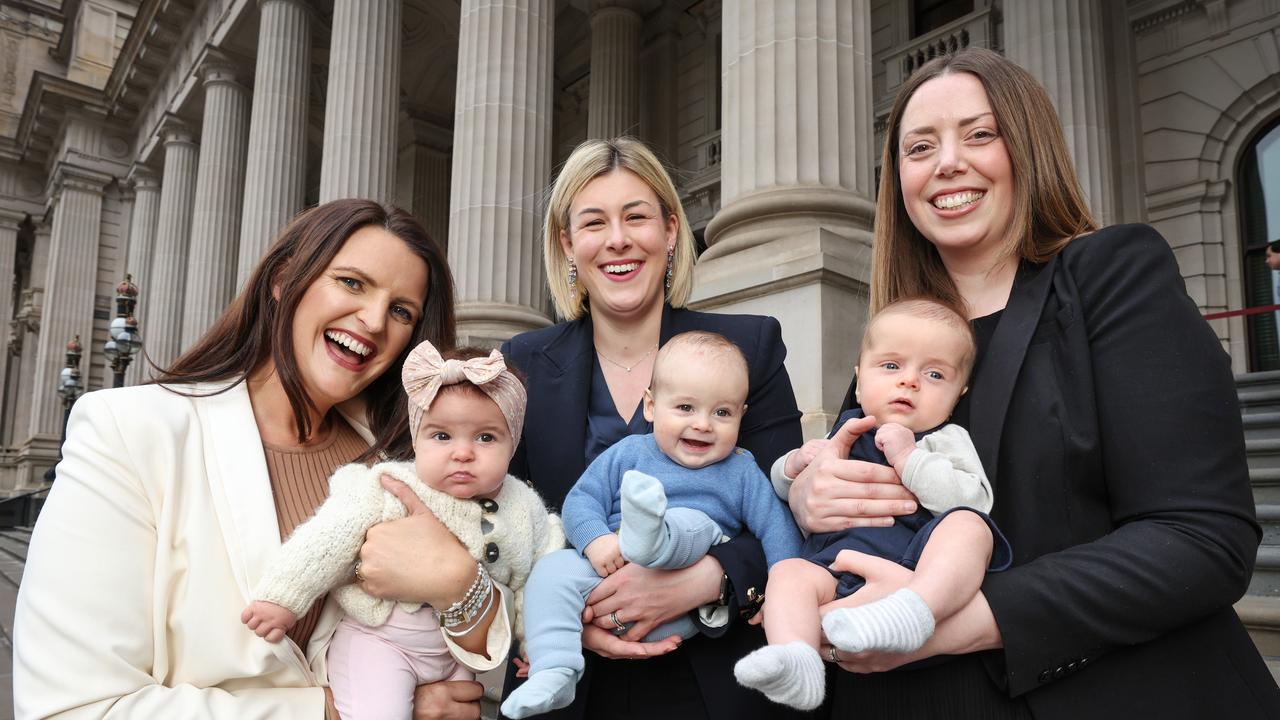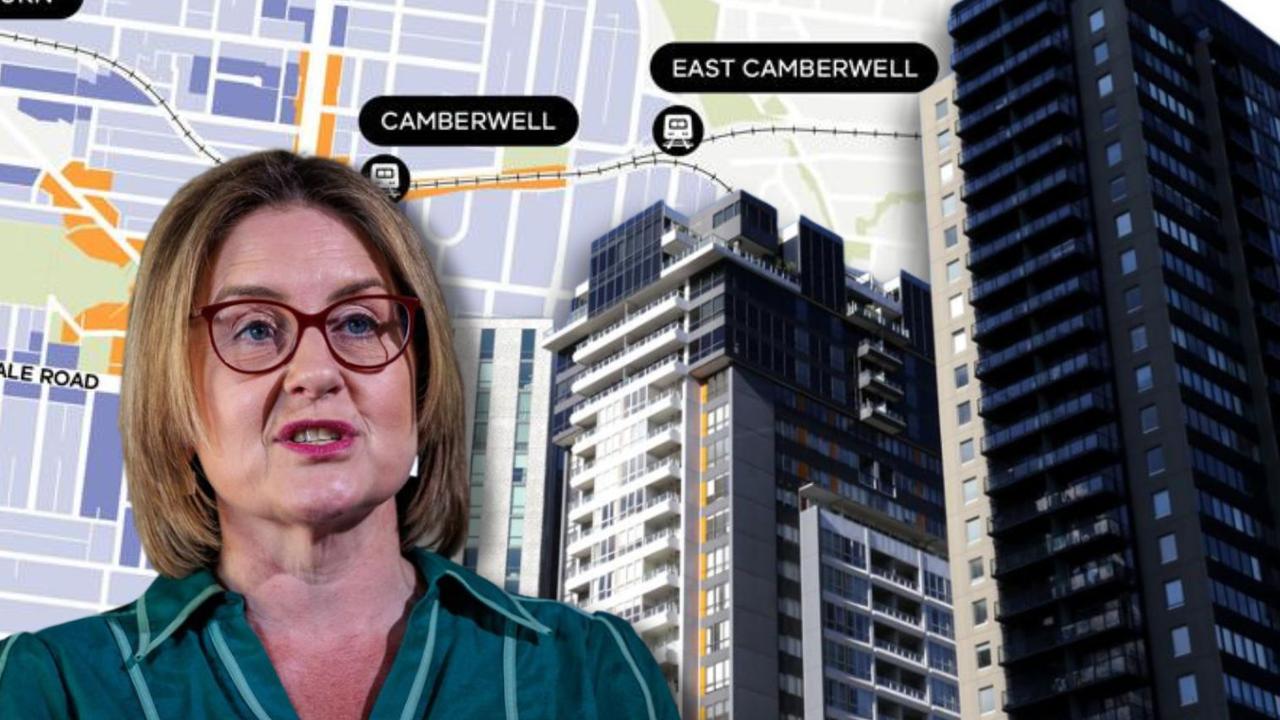Future Victoria: Inside the CSL lab growing human ‘brains’ in test tubes
Step inside the Melbourne lab that wants to change medicine with new technology, including a mini ‘brain’ trained to act like it’s inside a human — and grown in just three weeks.
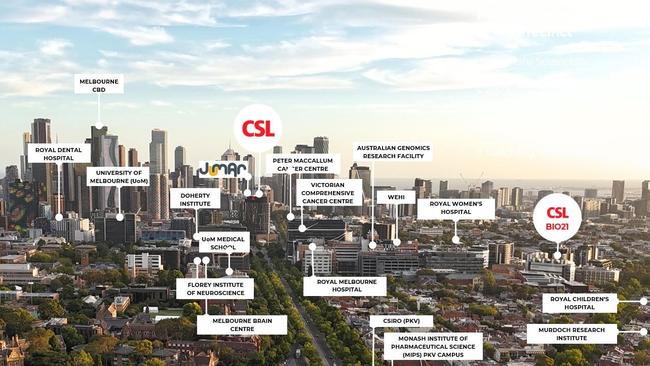
Victoria
Don't miss out on the headlines from Victoria. Followed categories will be added to My News.
Melbourne needs to close the gap between academia and industry to ensure more of our state’s “world class” research is brought to market by the city it began in.
Victoria punches above its weight for medical research, but Australian biotech giant CSL wants to see more homegrown companies bring those discoveries to patients.
Head of innovation Dr Marthe Dombrain said the “fantastic output” of Victoria’s “high quality” universities and research institutes was not translated “all the way through to benefiting patients and commercial outputs”.
“We have in Australia . . a gap when it comes to talent, so a gap in people who have gone on that drug discovery and drug development journey ,” Dr Dombrain said.
But CSL believes Melbourne is on track to change this and the Jumar incubator, located at their Melbourne headquarters and opened last year with co-founders Melbourne University and WEHI, could play a major role.
The incubator allows 24 biotech starts-ups to rent desk space in laboratories, access shared, expensive equipment — hot-desking, but for scientists — and connect with investors and experts.
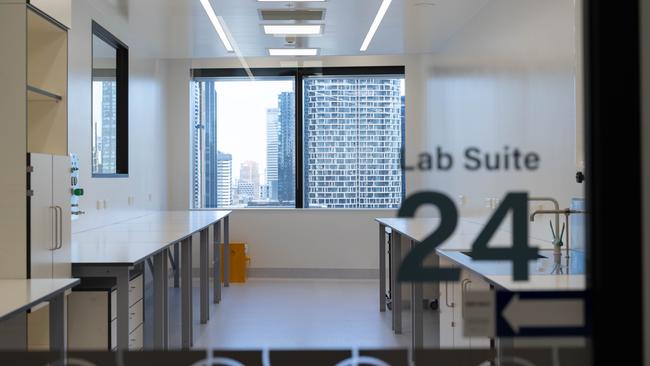
Dr Dombrain said the idea was to ensure promising drugs and technology weren’t lost because the start-up behind them failed for reasons unrelated to their research.
“If something fails on technical grounds, okay,” she said.
“But you don’t want it to fail because you didn’t have the right person running that company, because you couldn’t get investment.
“This is about building an ecosystem in Australia that is going to … deliver benefits to patients not only in Australia but worldwide.”
She said the incubator could not fix the translational gap on its own, but their dream was to see one of the start-ups become the “next CSL” and join the cluster of top universities, hospitals, research institutes and companies in the Parkville Biomedical precinct.
Technology under development at Jumar includes a biosensor hormone-monitoring patch – which has already attracted investment from Monash IVF – and mini test-tube “brains”.
Tessara Therapeutics chief executive Dr Christos Papadimitriou said the tubes contain micro tissue that mimics the human brain.
“We trick the cells to believe that they are inside the human brain,” he said.
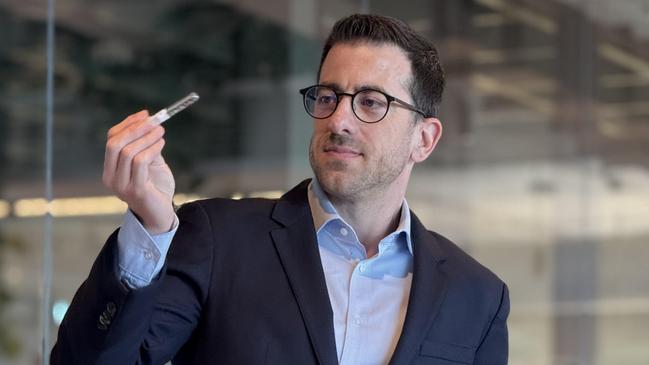
He said they wanted to accelerate the drug development for neurodegenerative disease by offering a more accurate method of testing than animal trials.
“We’ve cured anything in mice from cancer to neurodegenerative diseases, but the research does not translate.”
He said he hoped, in 25 years, their technology, and the database of information it could create, has been adopted by regulators and companies across the globe.
Symex Labs chief executive Edgar Charry said he was inspired to create a wearable hormone tracker after seeing his wife go through fertility treatments.
“I thought why not have a wearable device that can replace these blood tests that women have to go through,” he said.
He said they were conducting pilot studies now and hoped, in 25 years, to have a product that goes beyond IVF and has empowered women to feel heard in healthcare.
“We want to provide some more light really on perimenopause,” he said.
“Basically lifting that standard of care.”
CSL Head of Global Research Dr Mike Wilson said the incubator helped give investors “more confidence” to back biotech, which is a “high risk sector”.
He said he expected Melbourne, ten to twenty years from now, to have “a stronger translational capability” and a “greater fluidity” between academia and industry for scientists.
“I think that’s where the opportunity lies,” he said.
“People can develop that knowledge around what it takes to develop a drug.
“It’d be great if we had a more vibrant sector in terms of, you know, that level of experience that places like Boston and San Francisco enjoy.”
Originally published as Future Victoria: Inside the CSL lab growing human ‘brains’ in test tubes

